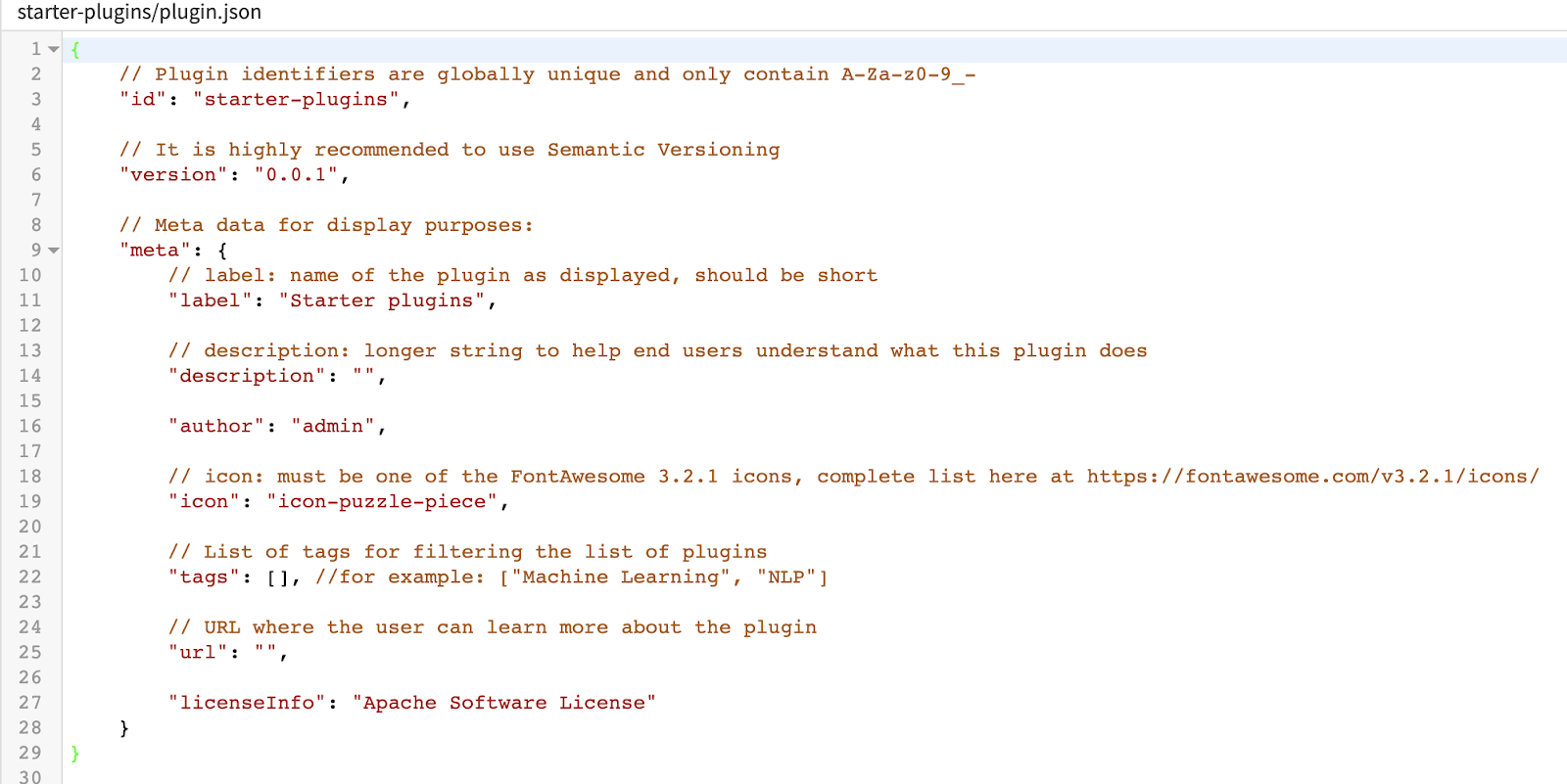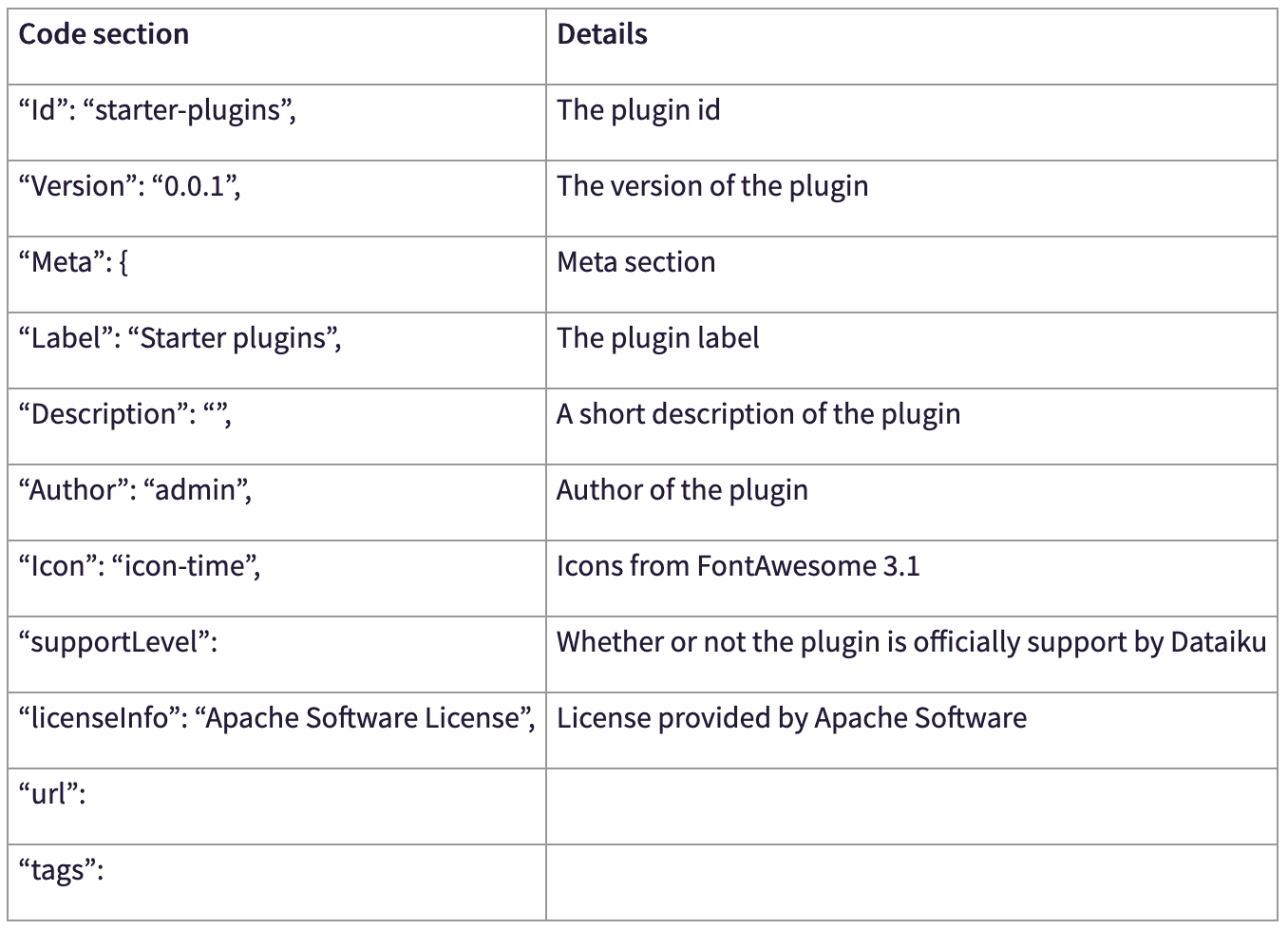Reference | Plugin naming policies and conventions#
Naming is an important area of plugin development that’s often overlooked. Dataiku requires that plugin names and identifiers meet certain policies.
Benefits of a naming policy#
It can be difficult to tell which of your installed plugins are developed internally, externally, or from Dataiku. One way to keep all your ducks in a row is to apply a plugin naming convention. In addition, when you share your plugins, your colleagues will be able to understand the purpose of the plugin.
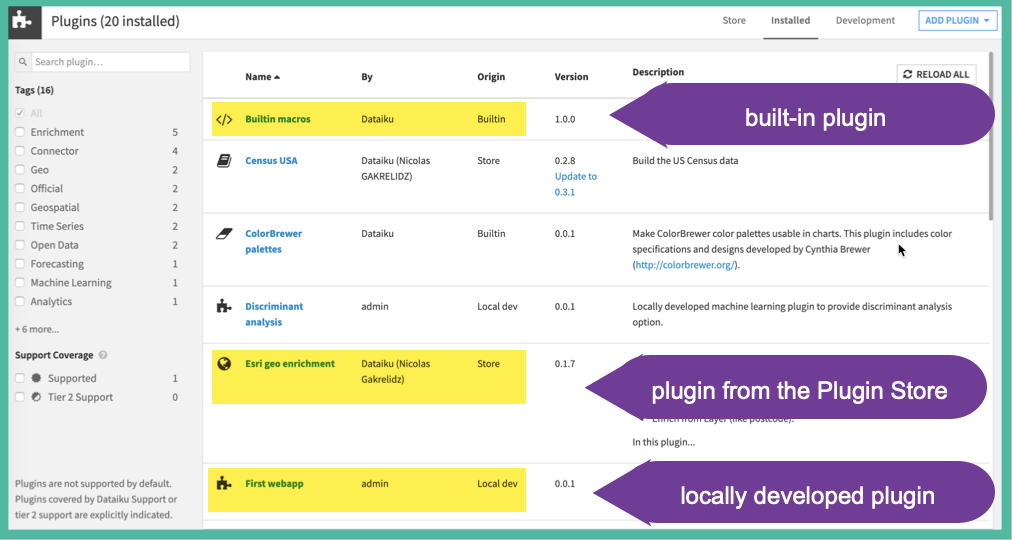
Plugin display name and identifier#
The plugin summary displays information about the plugin and its components. You can edit the display name and identifier for the plugin in the Edit tab.
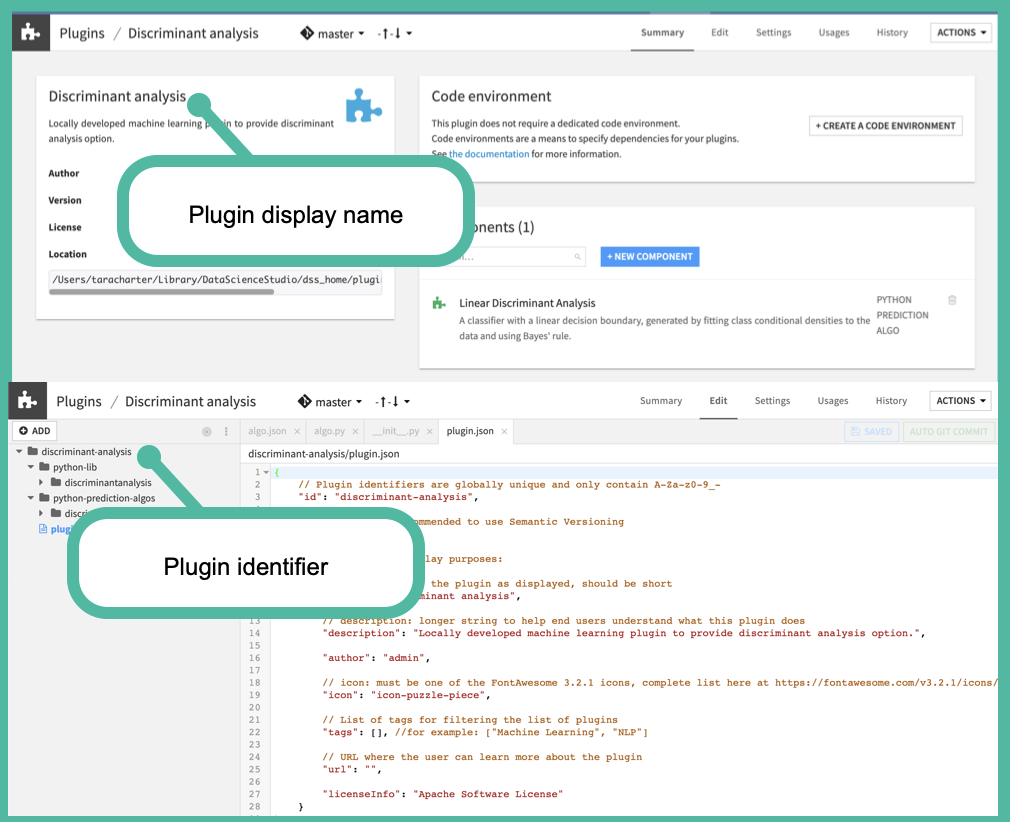
Component display name and identifier#
You can also edit the component display name and component identifier in the Edit tab. Adding a description is a good idea because it documents the reason why you created the component and lets others understand its usefulness and purpose.
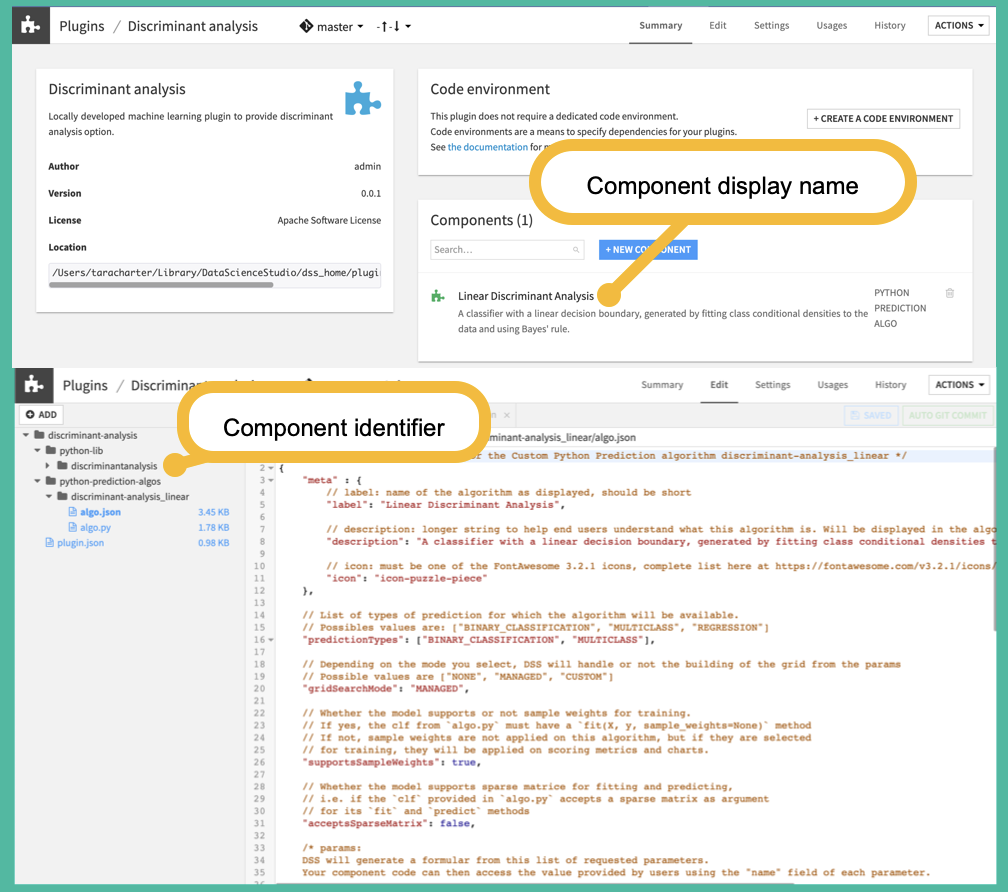
Policies and guidelines#
A naming error happens when the name of the plugin, or any of its components, labels, or tags, doesn’t meet plugin naming policies. Luckily, you can avoid these errors by following the plugin naming policies below. Most of the policies are required while a few are recommended.
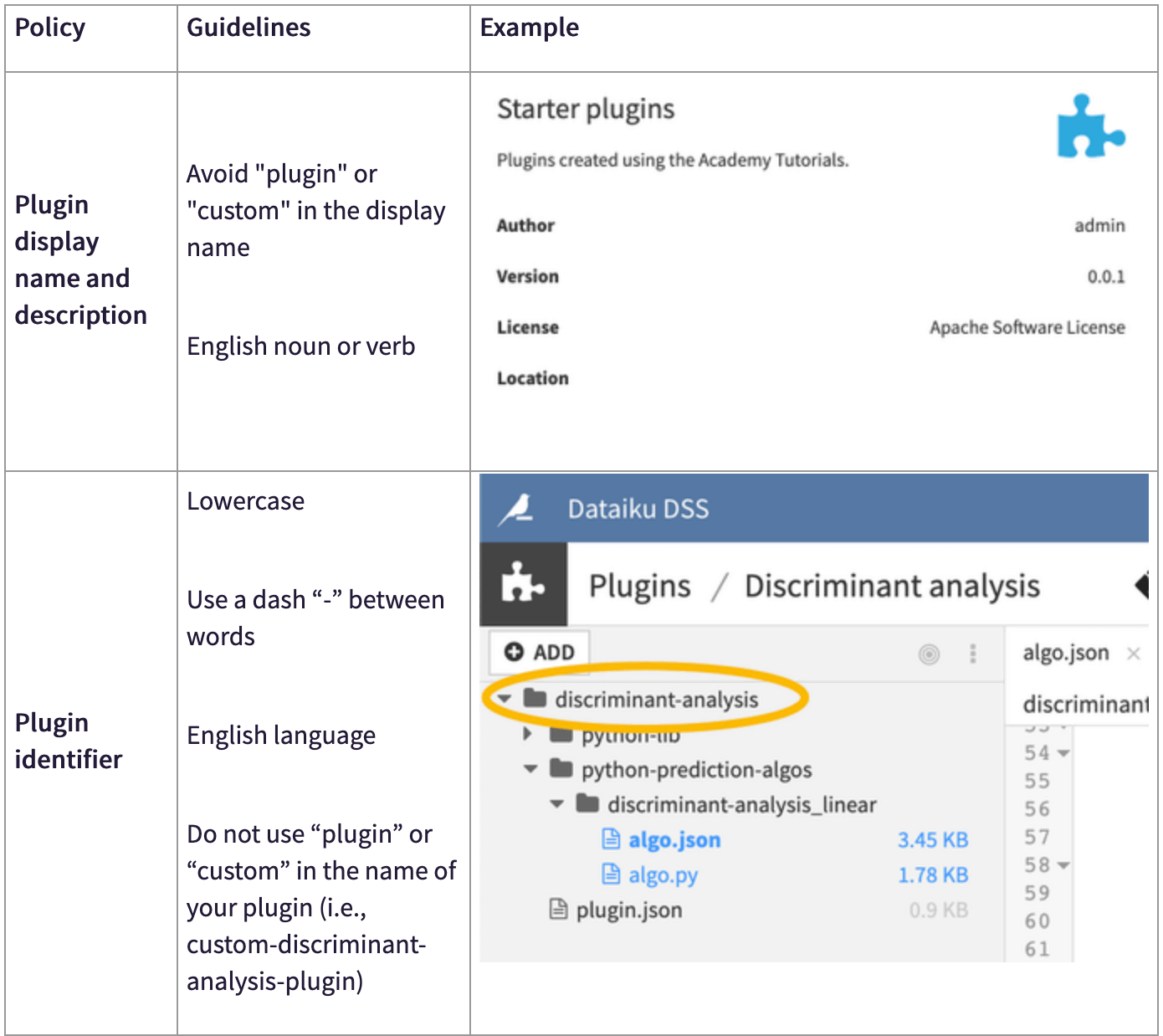
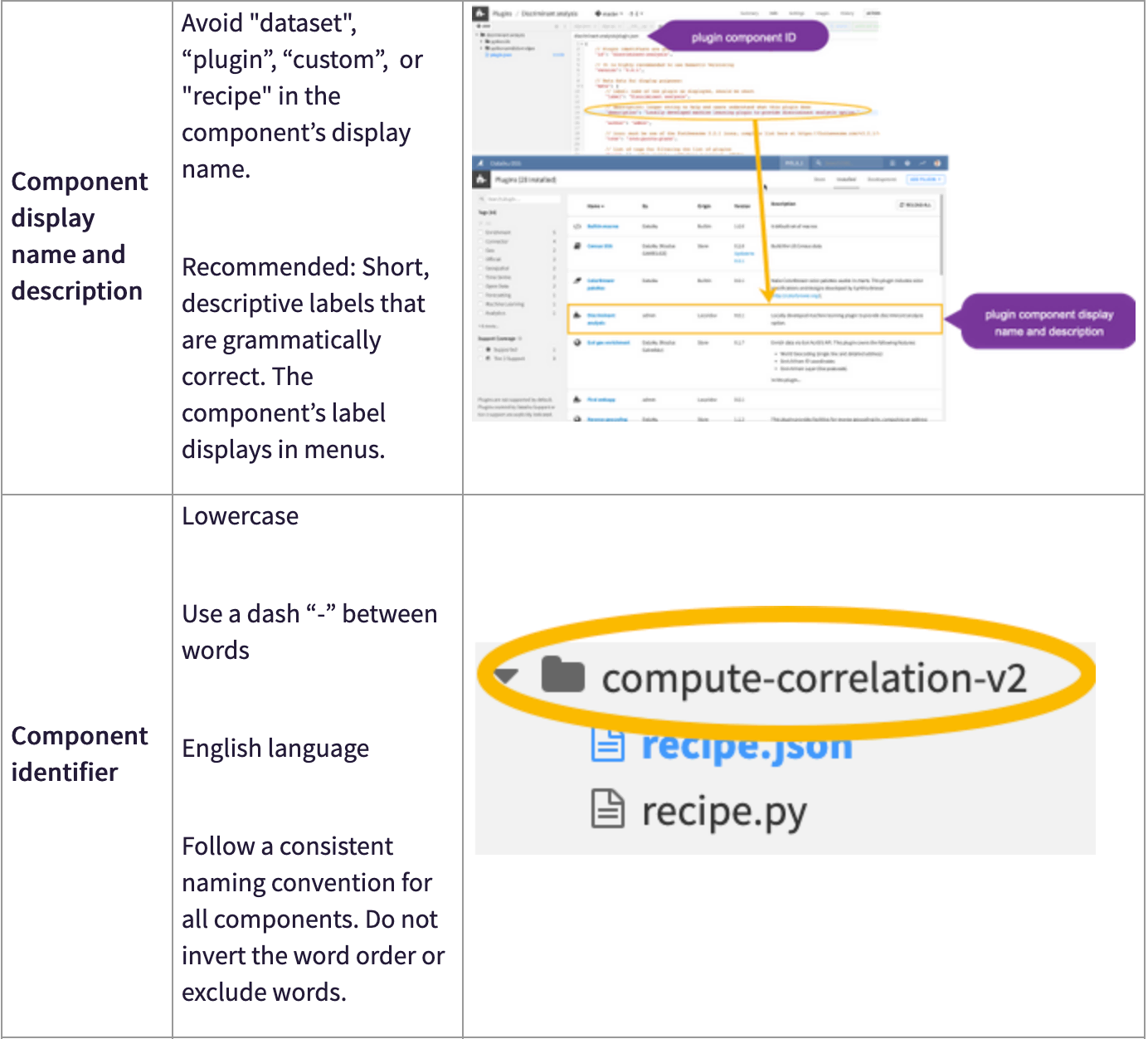
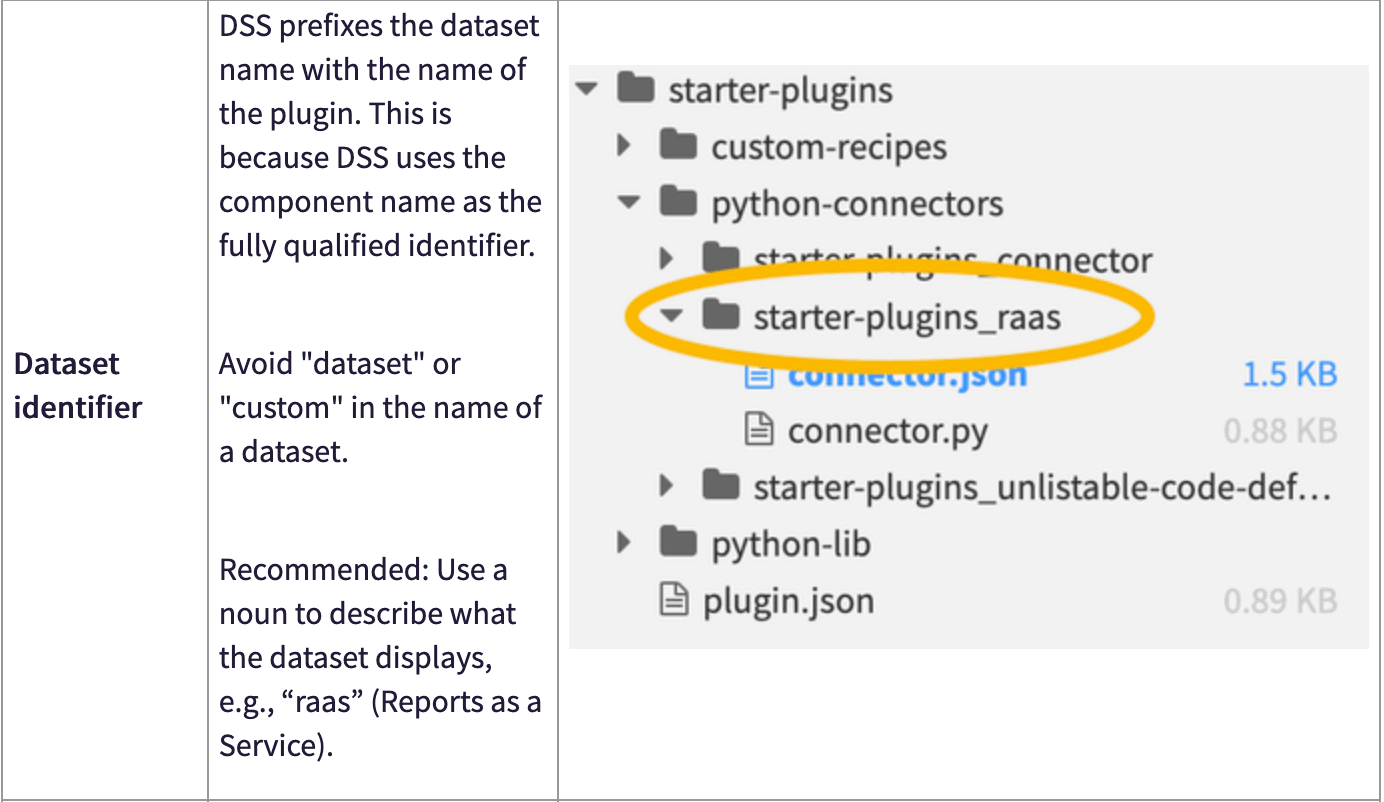
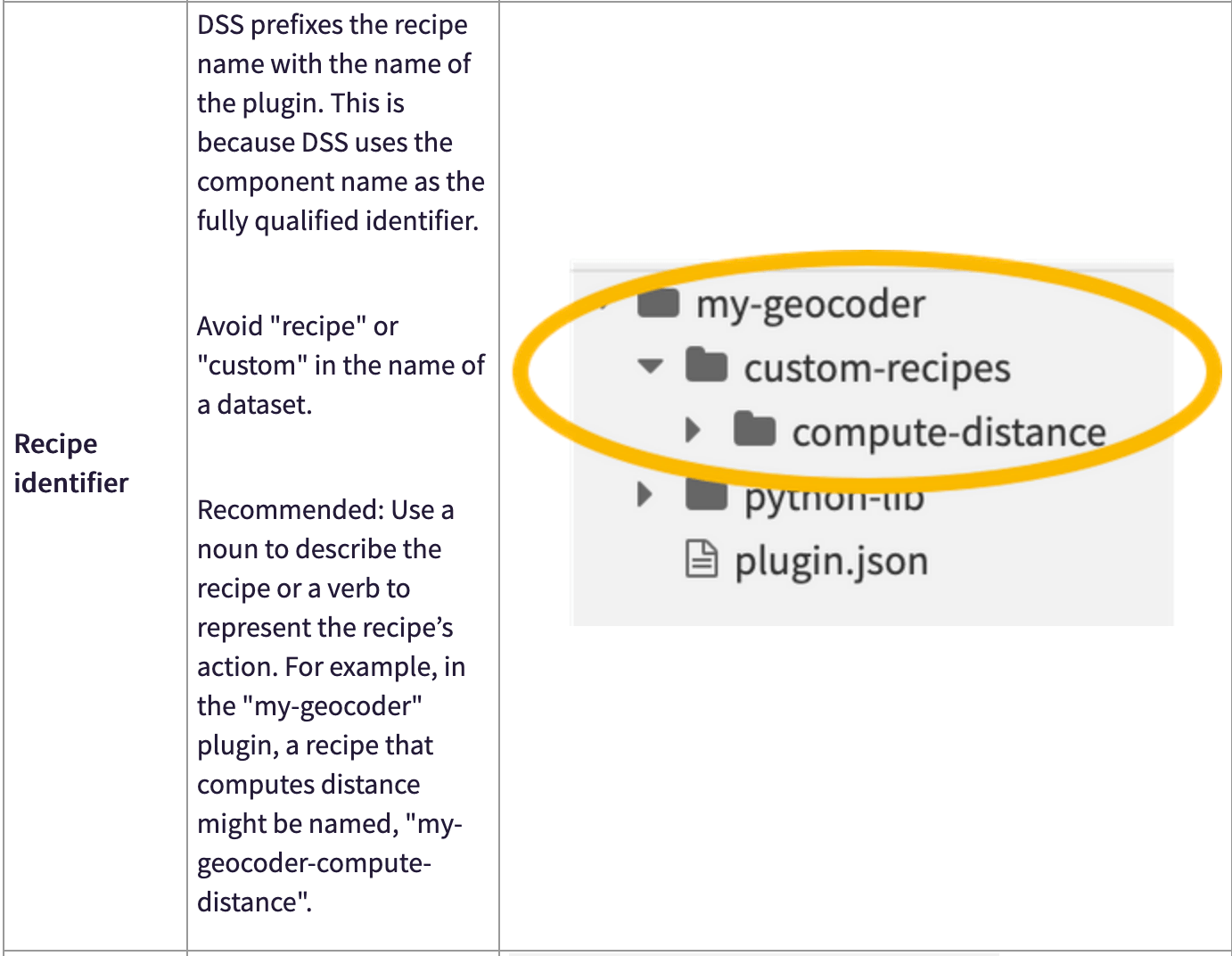
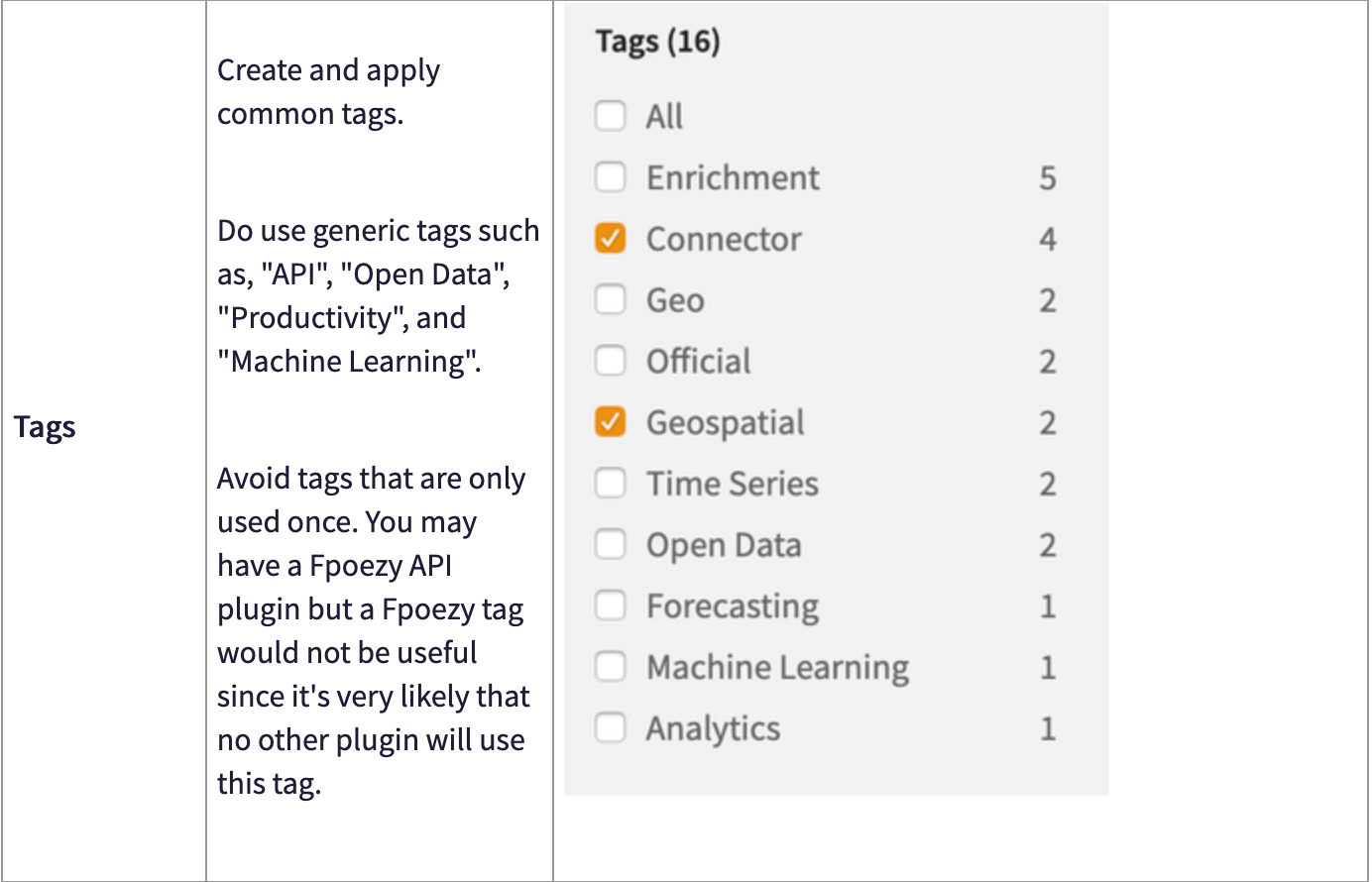
Plugin.json description#
